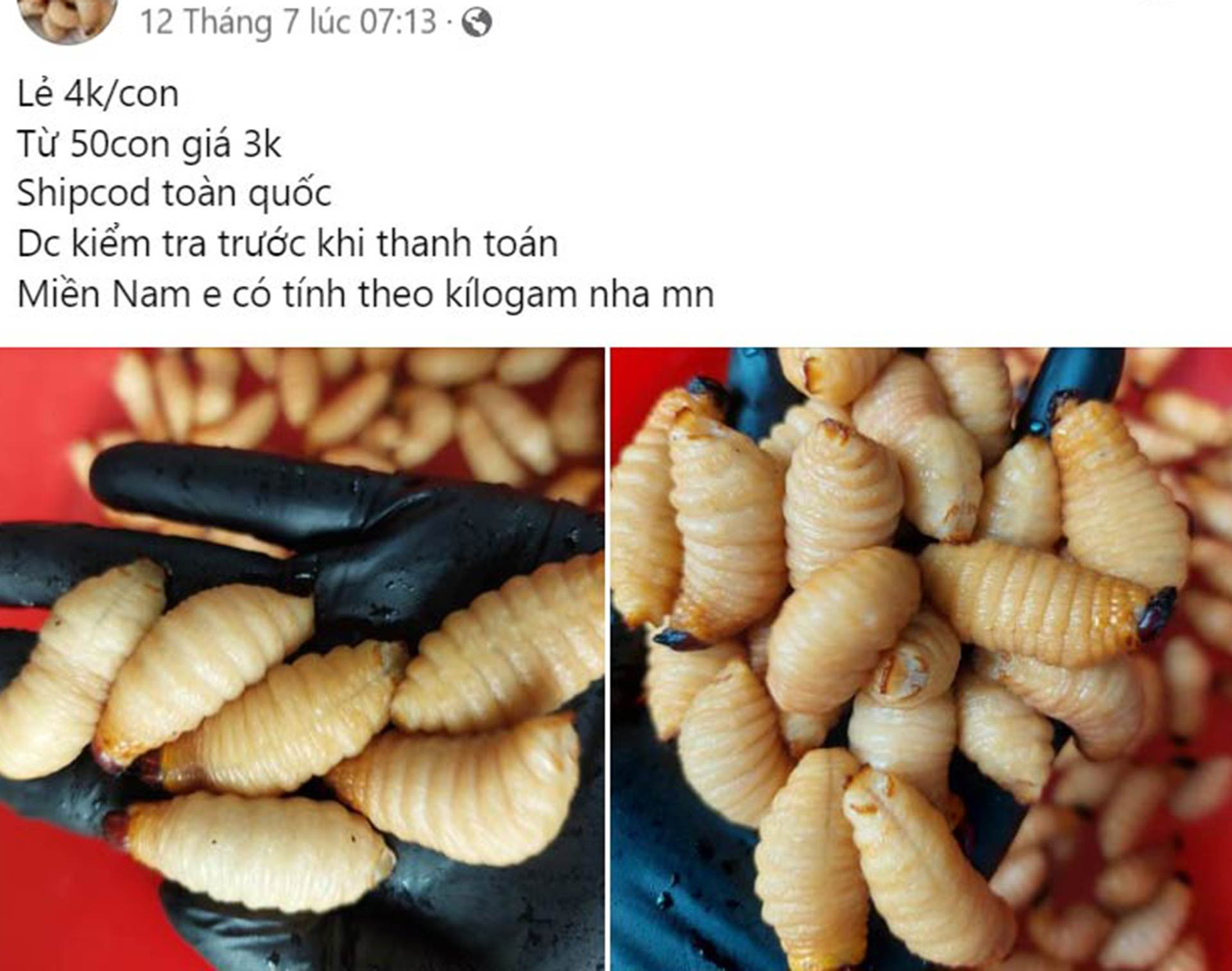
Coconut worms (Rhynchophorus ferrugineus) lay eggs in holes dug by rhinoceros beetles (Dynastinae). The eggs hatch into larvae that damage the young part on the top of the coconut tree, penetrate sprouts and gradually eat down coconut trees.
Coconut worms are the most dangerous pest to coconut trees. This kind of insect can damage hundreds of hectares of coconut trees each year.
As coconut worms are listed as harmful to coconut trees, breeding and trading coconut worms are prohibited. It is subject to strict quarantine. Under Decree 07 released in 2022, breeding, distributing and trading coconut worms are subject to administrative finds of VND3-12 million.
Lao Dong newspaper reported that in July 2016, the Ben Tre Department of Agriculture and Rural Development imposed a fine of VND6 million on Pham The Hien, the owner of a food garden in My Thanh An commune in Ben Tre City for selling coconut worms to diners. The owner of the food shop said the coconut worms were provided by locals and he sold to diners at VND10,000 per worm.
In the Mekong Delta, coconut worms are considered a specialty food favored by locals and travelers.
Hien was asked to commit not to continue to trade and sell coconut worms. This was the first case in Ben Tre in which an individual was fined for trading and distributing coconut worms in accordance with Clause 5 Article 19 of Decree 31/2016 that stipulates administrative fines in the field of plant varieties, plant protection and quarantine.
BenTre province has the largest coconut growing area in Vietnam, 67,000 hectares. In order to protect coconuts from coconut worms, the provincial people’s committee released a directive on prohibiting breeding and distributing coconut worms.
However, some households in the province are still breeding coconut worms, while restaurants are still selling dishes made of the worms as a high-quality specialty food.
Ben Tre people are well aware of the danger caused by coconut worms. They can kill coconut gardens very quickly. However, many people ignore the current laws and secretly breed the worms as they can sell them to restaurants at high prices.
Coconut worms are bred in plastic barrels which eat coconut stems and leaves. It is difficult to tell the difference between natural coconut worms and bred worms because they grow in the same environment and eat the same food. Fresh coconut worms are sold at VND3,000-6,000 each.
Hanh Nguyen